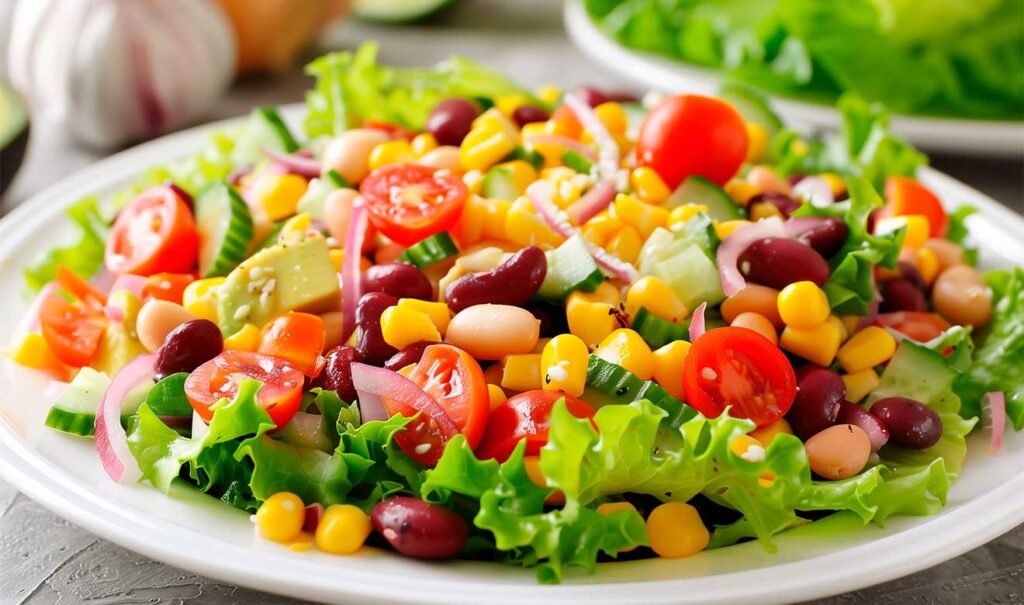Menopause is a natural stage in a woman’s life that marks the end of menstruation and reproductive capacity. It generally occurs between the ages of 45 and 55. This process involves a series of hormonal changes, especially a decrease in estrogen levels, which can cause symptoms such as hot flashes, insomnia, irritability, weight gain, and bone loss.
In this context, nutrition plays a fundamental role, as a proper diet can not only help mitigate many of these symptoms but also prevent chronic diseases associated with this stage, such as osteoporosis, cardiovascular disease, and diabetes.
Various studies have addressed nutrition as an ally for women entering or experiencing menopause . Recently, a study published in the journal of the Menopause Society (based in Ohio, USA) revealed that soy helps reduce both moderate and severe hot flashes. Similarly, it has been highlighted that the Mediterranean diet can reduce menopausal symptoms and improve the quality of life of women in this phase.
Professor Mariana Isabel Valdés Moreno, head of the Nutrition Program at the Faculty of Higher Studies in Zaragoza, began by clarifying that diet should not only be reactive once menopause arrives, but also preventative, “because taking care of your diet beforehand can reduce the discomfort associated with this stage.”
Characteristics of an adequate diet at this stage
As previously mentioned, several studies have focused on how diet influences the ease of menopause symptoms. Valdés Moreno highlighted some foods that are beneficial during this stage:
*Legumes (beans, lentils, chickpeas, broad beans). These foods, in addition to being rich in protein, also contain fiber, which helps improve digestion and contributes to better intestinal health. They are free of saturated fat, which is beneficial for preventing cardiovascular disease, a condition that women are at greater risk of experiencing during menopause, according to some research.
*Whole grains, such as amaranth, corn, or oats. These foods help maintain stable blood glucose levels and provide energy.
*Various fruits and vegetables. “It is especially recommended to consume brightly colored fruits and vegetables (red, orange, yellow) because they often contain carotenoids, precursors of vitamin A.” These foods also provide natural water, fiber, and anti-inflammatory compounds.
*Healthy fats of plant origin: “ Trans fats should be avoided and saturated fats should be limited, while unsaturated fats should be prioritized, which are found in foods such as avocado, olive oil, avocado oil, walnuts, almonds, and peanuts (the latter three should not be salted or over-roasted).
On the other hand, the university expert indicated that it is necessary to reduce or eliminate consumption of ultra-processed foods, sugary drinks, salt, or foods high in sodium, as they can worsen discomfort associated with menopause or affect overall health. These products can contribute to weight gain, inflammation, high blood pressure, and deterioration of bone health.
Hydration will depend on each woman’s characteristics, such as her level of physical activity, the climate she lives in, and the intensity of hot flashes; these can cause profuse sweating, increasing the need for fluids. The main recommendation is to consume natural water as a source of hydration.
Soy for hot flashes
During menopause, estrogen levels in a woman’s body decrease significantly, causing several changes. Estrogen hormone therapy can help alleviate these discomforts, but it has also been associated with an increased risk of blood clots and breast cancer. As a result, other alternatives have been sought.
As previously mentioned, a study published in the Journal of the Menopause Society of the United States revealed that soy helps reduce hot flashes, both moderate and severe, due to its phytoestrogen content. These plant compounds, present in soy and its derivatives (excluding soy sauce), mimic the function of estrogen. “Therefore, regular consumption of soy can reduce the frequency and intensity of hot flashes, but it does not act as an immediate-effect medication,” clarified Valdés Moreno.
Despite this, she cautioned that more research is needed on the effects of soy in reducing hot flashes, as the results obtained are inconclusive due to differences in research protocols. However, she noted that there is a lower incidence of hot flashes in Asian women, possibly due to their regular consumption of soy, in contrast to other cultures where it is not part of the daily diet.
Mediterranean or cornfield diet as a model
The study, titled “Systematic Review of Mediterranean Diet Interventions in Menopausal Women,” conducted by Portuguese scientists, showed that this type of diet contributes to weight loss and stable cholesterol, triglyceride, and blood pressure levels.
The FES Zaragoza expert pointed out that, while following a Mediterranean diet is beneficial for the health of women experiencing menopause, the milpa diet should also be considered as an option. The Mediterranean diet is composed of fruits, vegetables, whole grains, legumes, nuts, olive oil, and fish; the milpa diet is rich in corn, beans, squash, chili peppers, amaranth, and quelites, not to mention fruits and vegetables.
Likewise, physical activities such as walking or swimming should be carried out, since, while nutrition is important, keeping the body active is also necessary for good health.

